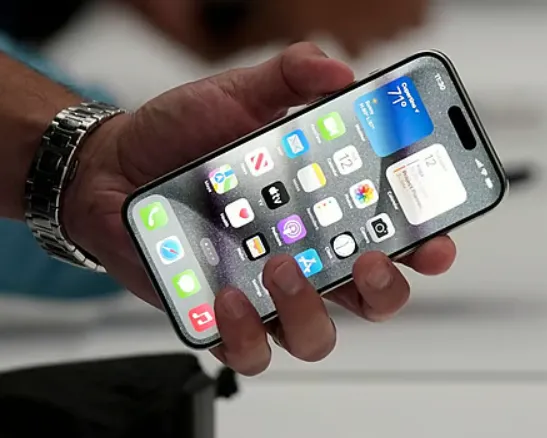Apple seems ready to take battery management to the next level with the upcoming iPhone 17 Air. Reports suggest that iOS 26 will debut an AI-driven charging system designed to better align with a user’s daily routine. Instead of simply learning when you typically plug in, the new feature may adapt to calendar events as well—ensuring your phone is fully charged right before you actually need it. Imagine waking up for an early flight or heading into a morning meeting, only to find your iPhone topped off precisely in time.
Built for an Ultra-Thin Design
The iPhone 17 Air is rumored to be Apple’s slimmest handset yet, measuring just 5.5 mm in thickness. To achieve such a thin profile, Apple is expected to use a smaller battery than the one found in standard iPhone 17 models. The AI charging system would therefore play a crucial role in stretching every ounce of power from the device. Despite its slender build, the phone may still carry a 6.6- or 6.7-inch display, offering users a large-screen experience in a lightweight form factor.
The Role of Next-Gen Battery Tech
To complement its intelligent software, Apple is reportedly considering the adoption of silicon-anode batteries from TDK. These advanced cells promise faster charging speeds and improved energy density, potentially offsetting the challenges of a slimmer battery. With TDK scheduled to ship these batteries by the end of June, the timing appears to align well with Apple’s production schedule for the new iPhone lineup.
When to Expect the Reveal
Apple traditionally uses its June WWDC event to showcase software updates, but this particular charging feature may stay under wraps until the iPhone 17 Air is unveiled in the fall. Still, it’s possible that hints of the technology could surface in iOS 26 developer betas released shortly after WWDC. Either way, anticipation is building for both the software and the hardware that will showcase it.
Why It Matters
Battery performance remains one of the most important concerns for smartphone users. Even with today’s optimized charging, many still struggle with balancing quick top-ups and long-term battery health. An AI system capable of adapting to personal habits could represent one of the most significant improvements to iPhone power management in recent years. If successful, the iPhone 17 Air won’t just be Apple’s thinnest phone—it could also set a new benchmark for intelligent, efficient charging.
